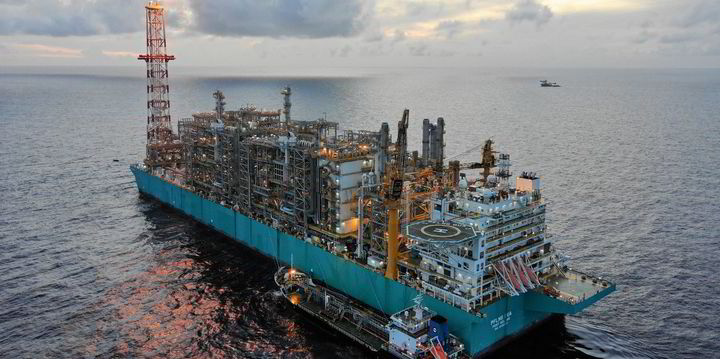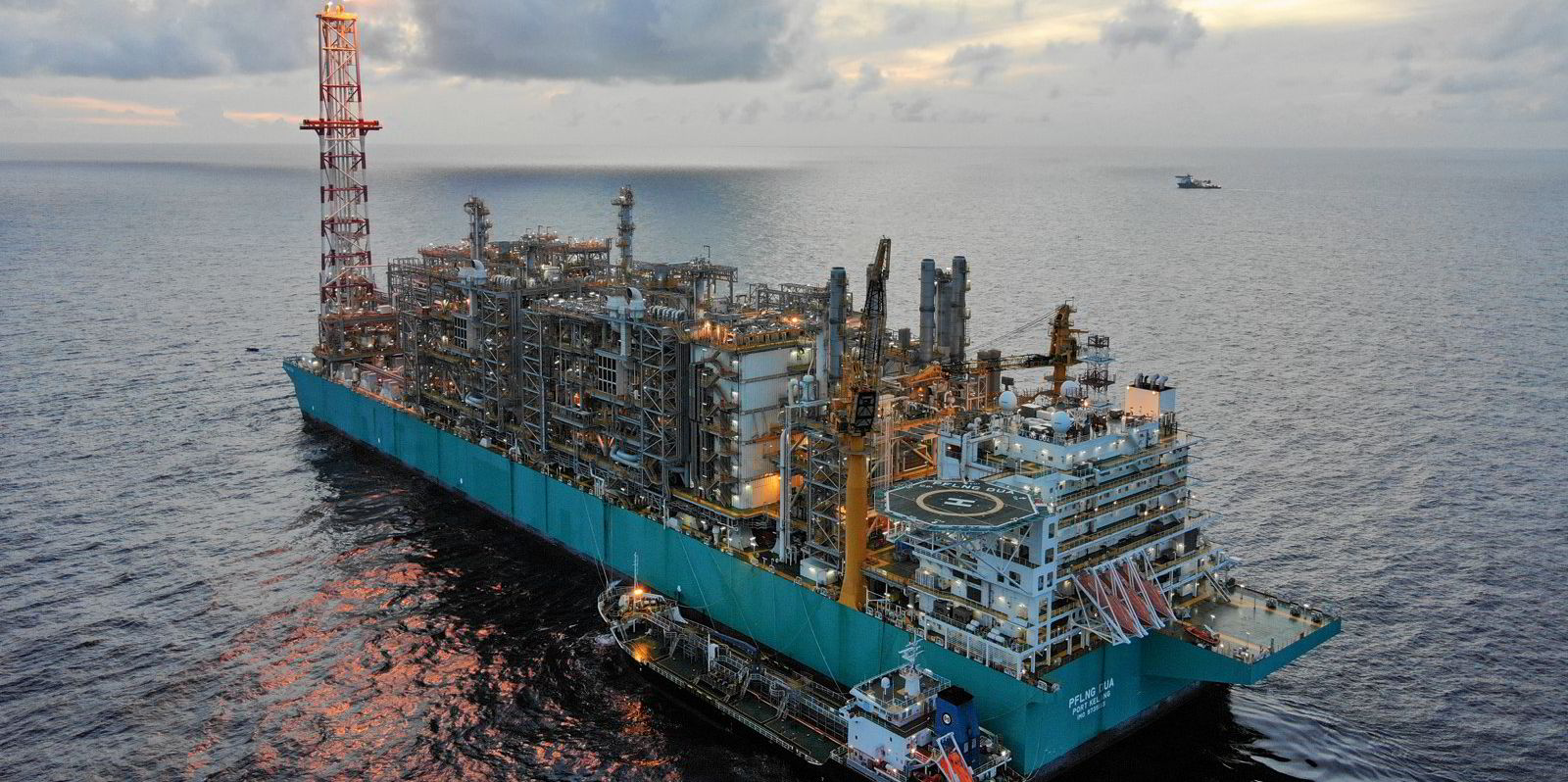US services giant Baker Hughes has been chosen to supply key equipment for Petronas’ third floating liquefied natural gas (FLNG) vessel.
This project, dubbed ZLNG, is a nearshore FLNG project in Sabah, East Malaysia — Petronas’ two existing FLNG vessels are both deployed offshore the same state.
Baker Hughes on Wednesday confirmed it has been awarded a contract from Black & Veatch, a subcontractor to ZLNG’s JGC and Samsung Heavy Industries lead engineering, procurement, construction and commissioning consortium, to deliver two LM9000-powered compressor trains of 1 million tonnes per annum apiece for the grassroots liquefaction project.
The 2 million tonnes per annum barge-based ZLNG facility will be built at Samsung’s Geoje Island yard with JGC handling the topsides. The facility is scheduled for delivery by August 2027.
“The development of Sabah’s first nearshore LNG plant reflects our technological expertise where we continue to innovate modern solutions to monetise gas resources in an optimised and environmentally friendly manner,” Petronas’ then-chief executive of gas and new energy, Adnan Zainal Abidin, earlier said.
Baker Hughes hailed the LM9000 technology as “the most efficient simple cycle gas turbine in the 65+ megawatt power range, leading to lower carbon intensity and emissions”.
Article continues below the advert
“Energy efficiency represents the biggest immediate opportunity for the industry to lower its carbon footprint, and the LM9000 is a great example of readily available technology that can instantly increase efficiency and reduce emissions,” said Alberto Matucci, vice president of gas technology equipment of industrial & energy technology at Baker Hughes.
The LM9000 gas turbine has simple cycle efficiency of 44% and a power output 15% higher compared to industry peers, the contractor added.
“This efficiency is key to driving lower carbon intensity and combined with lower nitrogen oxides (NOx) emissions targets —15 parts per million in dry condition, 40% lower than competing technology — makes for a more environmentally sensitive solution. Its compact, modular package allows for fast installation and lower costs than field-erected units,” said Baker Hughes.

